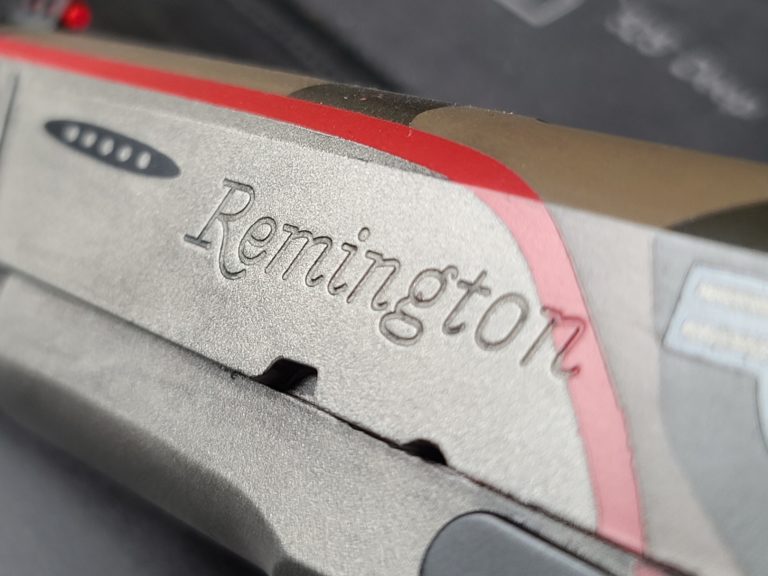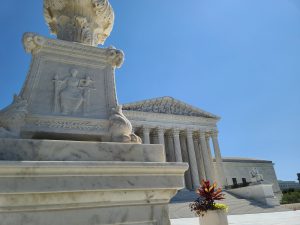Gun-control activists won an unprecedented settlement with insurers of defunct Remington Outdoor Company on Tuesday and it signals bad news for the gun industry as a whole.
The $73 million payout to families of Sandy Hook victims is likely to send ripples across the country with significant pressure being placed on gun makers and dealers. The ability of gun companies to secure liability insurance and place advertising is likely to be curtailed in the immediate aftermath. But the consequences could grow from there as more cases testing the limits of federal liability protections using similar tactics are filed.
This case was something of a proof of concept for the latest strategy in circumventing the federal Protection of Lawful Commerce in Arms Act (PLCAA). One exception to the liability blanket provided by the PLCAA is if the company being sued broke state law. So, plaintiffs argued Remington’s “aggressive and violence-glorifying marketing of its AR-15s was an unfair trade practice” in violation of Connecticut law.
We’ll never know if that argument would have ultimately prevailed at trial, but it was enough to secure a settlement and contribute to putting one of the oldest American gun makers out of business.
The first-of-its-kind payout likely means gun makers will have to pay more for liability insurance as insurers adjust to the heightened risk of future settlements. It also means they’ll need to prepare to fight more copycat cases since activists are likely to be emboldened by the success of the Sandy Hook plaintiffs.
Alinor Sterling, a partner at the firm who represented the plaintiffs, said cases inspired by their litigation are already being filed.
“Before we brought this case, gunmakers thought they could not be held accountable for mass shootings. This case shows they can be,” he said in a statement. “It is already serving as a model for other gun cases across the country.”
And the goal is clear: use litigation to impose restrictions on gun companies activists have failed to implement through legislation.
“The Sandy Hook victims were slain in a commando-style assault on the school,” plaintiffs said in their filing with SCOTUS. “Their killer’s weapon of choice was a Bushmaster XM15-E2S rifle, manufactured and marketed by petitioners. The XM15-E2S was designed for military combat, specifically to inflict maximum lethal harm on the enemy.”
Sterling’s firm compared the suit to cases that severely restricted tobacco industry operations and said it hoped to force similar restrictions on the gun industry.
“For the insurance and banking industries, it’s time to recognize the financial cost of underwriting companies that elevate profit by escalating risk,” Josh Koskoff, another lawyer representing the plaintiffs, said in a statement. “Our hope is that this victory will be the first boulder in the avalanche that forces that change.”
In the near term, that seems likely to happen with gun marketing at the very least. I’ve heard from industry sources that some major companies are already treading more lightly on where and how they advertise. That will probably continue at pace until another high-profile case is decided in the industry’s favor.
However, there are reasons to think the settlement may not have a long-lasting impact. Or, at the very least, it won’t result in what gun-rights activists hope.
For one, the settlement isn’t a legally-binding present. It was not the result of a judge’s ruling or a jury’s decision.
The case never made it to the merits. The argument that Remington’s advertising somehow contributed to the Sandy Hook massacre was never actually tested. No evidence was presented the advertising was even seen by the shooter.
The National Shooting Sports Foundation said it is confident the plaintiffs would have lost if it had made it to a jury. The industry trade group also disowned the settlement as the work of insurers rather than industry members. It argued the settlement would have “no impact” on liability protections for the rest of the industry.
“PLCAA will continue to block baseless lawsuits that attempt to blame lawful industry companies for the criminal acts of third parties,” he said.
The plaintiffs were also forced to abandon a broader attack on Remington over the general sale of AR-15s to the public. They had initially claimed the gun was designed for war and unsafe to sell to civilians. The Connecticut Supreme Court blocked those claims but allowed the marketing argument to proceed despite noting it would take a “Herculean effort” to prove it in Court.
Still, it’s impossible to look at the circumstances and not see further risk for the industry. While the industry has been able to weather these kinds of suits for decades now, the groundwork has now been laid for even more of them. And relief is probably not around the corner.
If gun-control activists really have found the Achilles heel of the PLCAA, Congress isn’t coming to the rescue anytime soon. Even if Republicans capture both houses in the midterms and manage to get tweaks through them next year, President Joe Biden (D.) is a staunch opponent of the PLCAA. He’s said he literally prays to God it will be repealed. So, he’s probably not going to be willing to expand it.
The Supreme Court may also be uninterest in intervening. It passed on a petition by Remington to intervene in 2019. The Court has become more interested in taking Second Amendment cases as of late, but it may still want to see more developed cases from the lower courts before it decides to take a crack at the issue.
So, the effects of the Remington settlement are likely to reverberate through the gun industry for years before possible help from Congress or the Supreme Court.





